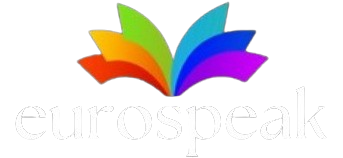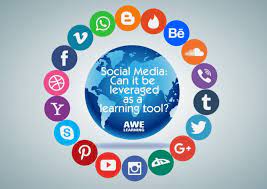In the digital age, where connectivity knows no borders, social media has become an integral part of our daily lives. But can scrolling through timelines and liking posts contribute to English language learning? At Eurospeak Language School in Reading and Southampton, we explore the dynamic intersection of social media and language education. Let’s dive into how platforms like Facebook, Instagram, Twitter, and more can be powerful allies in enhancing the English language learning experience.
- Immersive Language Exposure: Social media offers an immersive environment where learners can engage with authentic English content. Following English-speaking accounts, subscribing to language-related channels, and participating in online discussions expose students to a variety of vocabulary, expressions, and colloquial language, fostering a more natural understanding of the language.
- Interactive Learning Communities: Joining language-focused groups and communities on platforms like Facebook and Reddit provides students with a space to interact with native speakers and fellow learners. This interactive environment encourages discussions, Q&A sessions, and collaborative learning, creating a virtual classroom that transcends geographical boundaries.
- Cultural Insights and Context: Social media platforms are windows to diverse cultures and lifestyles. Following accounts that share content about English-speaking countries provides learners with valuable cultural insights and context. This exposure helps in understanding idioms, slang, and cultural references, contributing to a more comprehensive grasp of the language.
- Real-time Language Practice: Engaging with social media involves real-time communication, from commenting on posts to participating in live discussions. This instant interaction hones language skills by requiring quick thinking, effective expression, and adaptability—all crucial aspects of effective communication in English.
- Language Challenges and Hashtags: Harnessing the power of trending challenges and hashtags can turn language learning into a fun and interactive experience. Encourage students to participate in language challenges, share their progress, and connect with a broader online community. This not only makes learning enjoyable but also reinforces the habit of using English in different contexts.
- Educational Content and Language Games: Many educators and language enthusiasts share educational content, language tips, and even interactive games on platforms like Instagram and Twitter. By incorporating these resources into their social media experience, students can turn their casual scrolling into a purposeful learning activity.
Conclusion: In the age of connectivity, social media has emerged as a dynamic tool for English language learners. From immersive language exposure to real-time practice and cultural insights, these platforms offer a wealth of opportunities to enhance language skills. At Eurospeak Language School, we recognize the potential of social media as a supplementary learning resource, encouraging our students to explore the digital landscape and turn their social media presence into a powerful asset in their language learning journey. After all, in the realm of language acquisition, the hashtags and likes may just be the keys to unlocking a world of linguistic proficiency.




